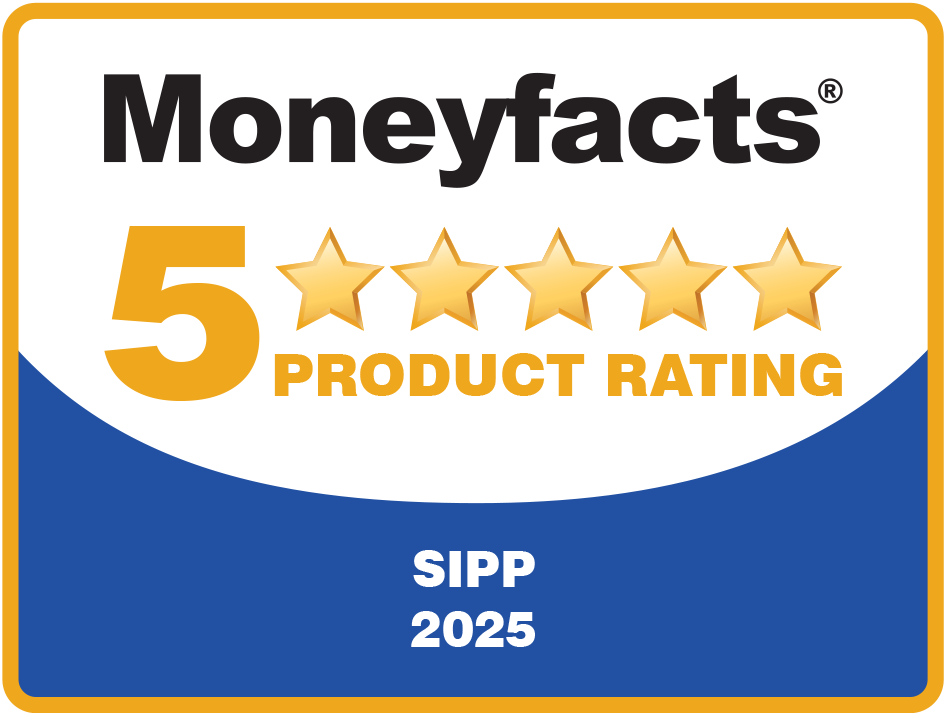7 important questions you need to ask SIPP providers on behalf of your clients
When clients are on the hunt for a new SIPP provider, the start of the process can be overwhelming. As you read in our recent article there are more than 100 different SIPPs out there being offered by over 70 different companies.
You can shorten this list by considering what type of SIPP will accommodate a client’s requirements. SIPPs can be broadly split into three separate categories:
- Online SIPP
- Single investment SIPP
- Full SIPPs.
As an example, if you have a client that wants to purchase a commercial property the only option will be to consider a full SIPP.
As with most things in life, charges are an important consideration when looking at SIPPs. However, finding the cheapest offering that accommodates your client’s investment requirements should not be the primary consideration.
We have previously considered the cases of Guinness Mahon, Liberty SIPP, and Guardian Pension Consultants, all SIPP providers that were placed into administration and are being dealt with by the Financial Services Compensation Scheme (FSCS).
The reasons for their respective collapses vary. However, a common thread is that these firms accepted clients from unauthorised introducers or facilitated investments which were unregulated and subsequently failed.
IPM only works with FCA regulated financial advisers and most of the advisers we work with do not recommend non-standard investments to their clients.
While IPM does not accept a large volume of non-standard business, we will consider certain non-standard investments based on individual merits, such as a quarterly dealing hedge fund for a professional investor, for example.
For advisers, however, it’s important to remember this: even if you don’t recommend these types of investments, you and your clients could still be caught up in any potential fallout should a SIPP provider fail.
We work with advisers who also had clients with each of the above named providers, holding straightforward investments. Each have encountered a range of difficulties since their collapse and subsequent transfer of business.
When we start dealing with a financial adviser for the first time, we are used to them asking us a wide range of questions. Our due diligence document contains answers to the most common of these.
Taking due diligence of SIPP providers in mind, here are some key questions you should ask any potential SIPP provider you may be considering working with, and any SIPP provider you currently have clients with.
The answers may allow you spot trends or patterns which could lead you to make a decision about the SIPP provider before it is too late.
1. What’s the ownership structure of the business?
Most advisers want to set up SIPPs with providers who are going to continue to operate in the SIPP space. Consequently, understanding the ownership structure is important.
Firstly, if the company’s ownership has several outside interests, what are their long-term plans for the SIPP side of the business? Is the SIPP offering a key part of their proposition, or an “add on?”
Are all shareholders in it for the long haul? Do the shareholders have interests in any other companies which could impact the SIPP provider or pose a conflict of interest?
If the company is privately owned, what is the succession plan for the business should the key individuals retire, step away from the business, or wish to sell their share?
2. How profitable is the business?
Like all businesses, SIPP providers are here to make a profit. We are sure you would agree that most people want to work with other successful businesses, so it is important to understand the financials of any SIPP provider you select for your clients.
This is as important as ever considering how Covid has impacted the world since 2020 and the current economic difficulties the world is currently facing.
It is not unreasonable for you to ask to see copies of abbreviated accounts for the last few years. This will give you an understanding of how the provider generates its income, how the business is run, and whether they are likely to remain in the market for the long term.
The amount may vary, however it is important to ensure that your SIPP provider is consistently making a profit. If there is the odd anomaly, the SIPP provider should be happy to discuss this with you.
Most SIPP providers will offer this information these days, often in a due diligence document.
3. What is your capital adequacy position?
The FCA’s capital adequacy requirements for SIPP providers increased significantly in 2016. Understanding how the business has dealt with this is a key point.
For IPM today, the amount we must keep in reserve well exceeds seven figures and increased by more than seven times when the new rules came into force.
SIPP providers’ capital adequacy is calculated using the total value of assets within the scheme, with an additional formula for clients who hold a non-standard asset.
We meet our capital adequacy through monies retained in the company. Not only do we meet the minimum amount required, we continue to ensure this is significantly exceeded.
A SIPP provider’s minimum requirement can fluctuate significantly, from the number of clients they take on board and the value of those SIPPs.
For example, a provider can take on 10 clients with SIPPs each valued at £20,000 while another provider can take on one client with a £500,000 SIPP and be expected to retain more capital.
So, some key questions to ask here are:
- What is the provider’s current position?
- How much in excess of their minimum requirement do they hold?
- Is their capital adequacy satisfied by profits retained in the company or supported by loans made to the company?
If capital adequacy is met by outside loans, you may wish to ask further questions about this.
4. How many clients do you have?
Asking about the number of clients a provider looks after compared to previous years can give you an understanding as to the level at which (or not!) the provider is growing.
Bear in mind, however, that the answer to this question can lead you to several conclusions:
- Significant growth year-on-year – Great! The provider seems to have a popular offering that is delivering for their clients. But are they investing in their back office to maintain service standards? How are they meeting the increase in their capital adequacy requirements? Satisfactory answers to questions like these should give you confidence.
- Slight or little growth – Not all providers grow by thousands of clients a year. While that may be OK, understanding why this is the case is important. Perhaps the business model focuses on modest growth and client retention as opposed to growing significantly each year? It will be important to understand the profitability of the provider if this is the case.
- Client numbers have fallen – Again, there could be a good reason for this; the SIPP provider has sold a specific book of business, for example. But again, it is important to understand why this is the case as, if client numbers are consistently falling, you may need to ask further questions of the provider.
5. What investment flexibility do you offer?
By this point, you should already know what type of SIPP your client requires. However, understanding the flexibility offered by a provider when it comes to investments is still an important point.
For example, will the provider allow access to your preferred platform or are you restricted to a panel? Does the SIPP give you the flexibility to combine all the different solutions you want within it, like a platform, a trustee investment bond, and a third-party bank account?
You will also need to understand the impact that your investment decisions for a client have in respect of the fees levied. Some providers will levy fees “per investment held in a SIPP” or if the investment house chosen is on a pre-approved panel.
You may also want to ask whether the SIPP provider accepts non-standard assets. If a SIPP provider does permit this, ask more about the amount of non-standard assets they hold, whether this figure is increasing or decreasing and whether they have a robust, ongoing assessment process for these types of assets.
As mentioned earlier, it could be that your client is caught up in the fallout of other business the SIPP provider has conducted.
6. What fees do you charge?
As you have read before, this can be a complex area. A lot of the points we previously raised are still valid, however when it comes to how this question fits in with your assessment of a SIPP provider, you need to consider additional areas:
- How simple is it to understand the provider’s charging structure? After all, advisers are the ones who must explain to their clients how these will work in practice!
- Lower annual fees may seem attractive, however, what other fees does the provider charge? For example, a provider might charge additional fees when money is moved from the trustee bank account, or to provide information. In this case, the total fees paid by the client can quickly add up and they can never be certain what they will pay year-on-year.
- Have any of the key fees increased in recent years? Or are fees due to increase going forward? Regular fee increases could suggest something more fundamental going on with the provider’s finances, so could trigger additional questions from you.
7. What levels of service do you provide?
The question of service is always a difficult one to quantify, as most providers will argue that they will provide a high level of service! However, there are still some areas to consider which are specific to SIPP providers.
When you have decided which type of SIPP is most appropriate for your client, you will know some of the questions you may need to ask.
Online support will be more important for an online SIPP than it may be for a SIPP that will be purchasing a commercial property, for example. (Saying that, all providers should offer certain aspects of their support online these days).
Does your provider of choice still work to specific turnaround times? Do you have named points of contact within the provider that are able to assist you? Both of these will be useful in determining what kind of service you can expect.
Another area to consider now is social proof. Most businesses, not just SIPP providers, should have Google reviews or testimonials online backing up what the provider suggests they offer.
Of course, there are also the industry awards and ratings which provide an independent assessment of a SIPP provider’s offering.
Get in touch
If you’d like to find out more about how we can help you and your clients, or if you’d like answers to any of the seven questions above, please get in touch.
Email info@ipm-pensions.co.uk or call 01438 747 151.



